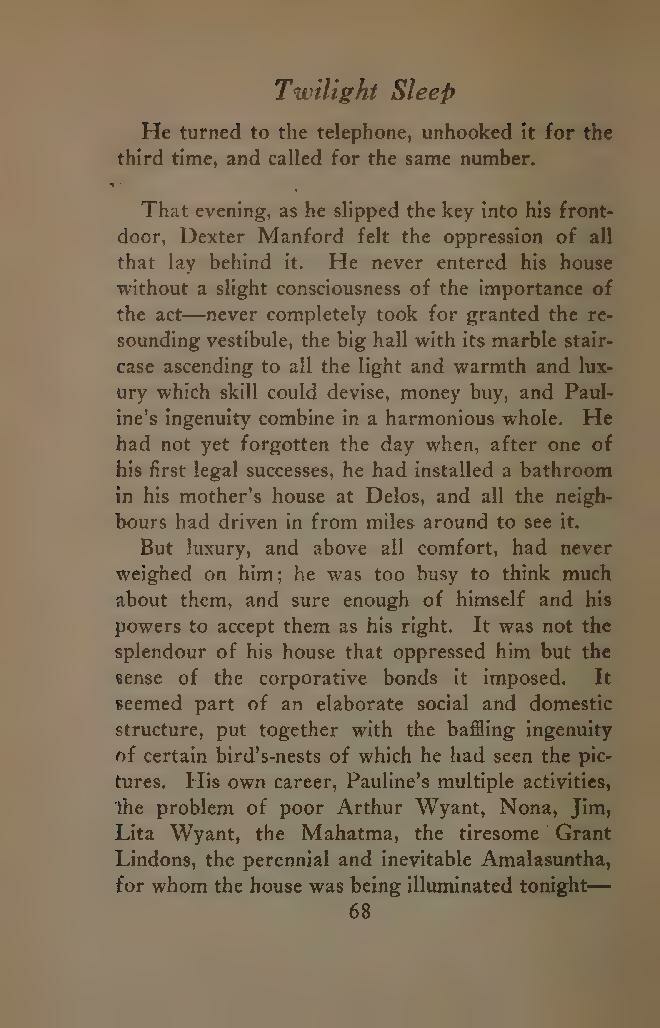Twilight Sleep
He turned to the telephone, unhooked it for the third time, and called for the same number.
That evening, as he slipped the key into his front-door, Dexter Manford felt the oppression of all that lay behind it. He never entered his house without a slight consciousness of the importance of the act—never completely took for granted the resounding vestibule, the big hall with its marble staircase ascending to all the light and warmth and luxury which skill could devise, money buy, and Pauline's ingenuity combine in a harmonious whole. He had not yet forgotten the day when, after one of his first legal successes, he had installed a bathroom in his mother's house at Delos, and all the neighbours had driven in from miles around to see it.
But luxury, and above all comfort, had never weighed on him; he was too busy to think much about them, and sure enough of himself and his powers to accept them as his right. It was not the splendour of his house that oppressed him but the sense of the corporative bonds it imposed. It seemed part of an elaborate social and domestic structure, put together with the baffling ingenuity of certain bird's-nests of which he had seen the pictures. His own career, Pauline's multiple activities, the problem of poor Arthur Wyant, Nona, Jim, Lita Wyant, the Mahatma, the tiresome Grant Lindons, the perennial and inevitable Amalasuntha, for whom the house was being illuminated tonight—
